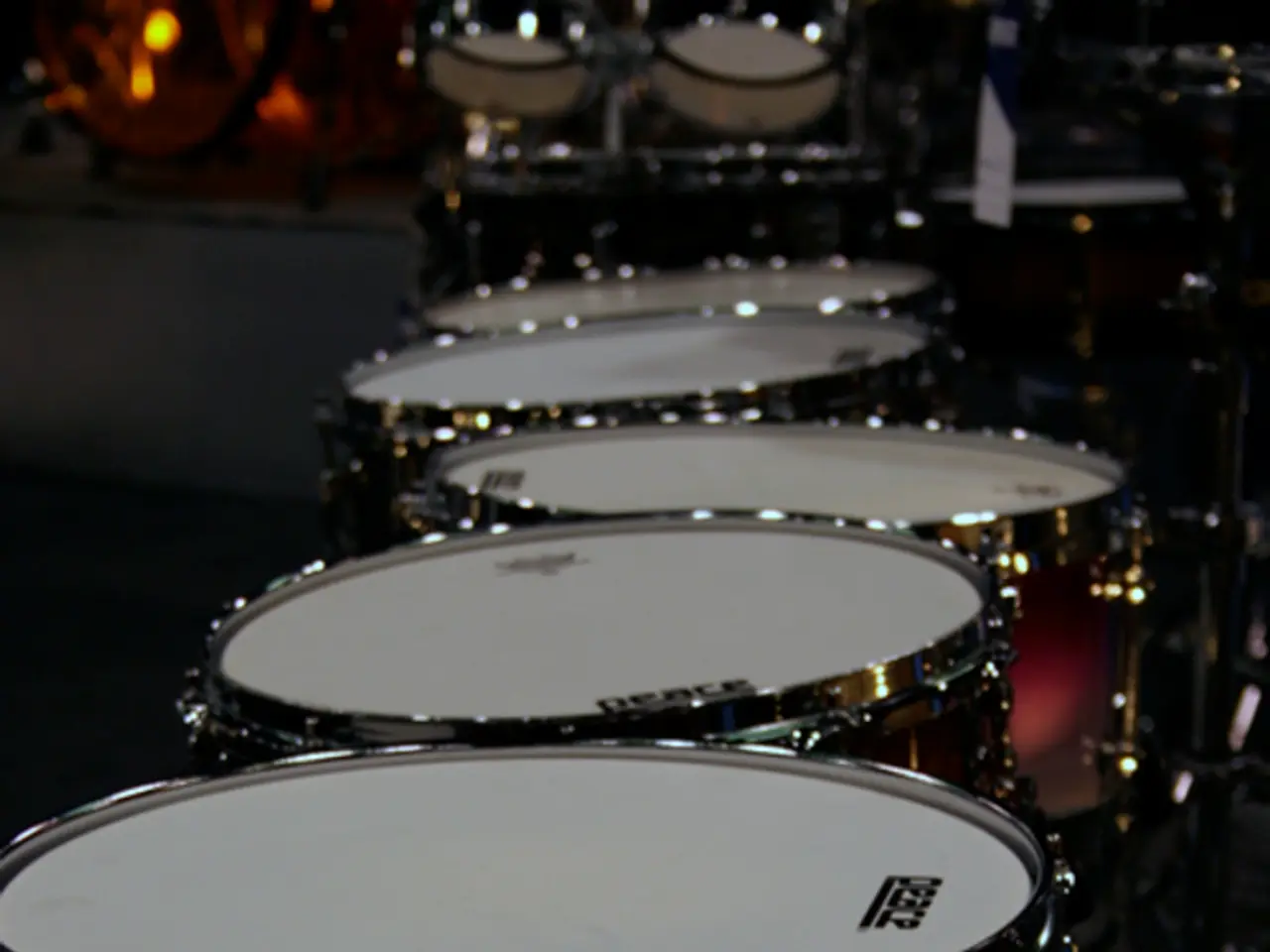Venezuela Contests $50 Million 'Narcoterrorism' Reward on Maduro as a 'Ludicrous Distraction'
In a move that has intensified the ongoing tensions between the United States and Venezuela, the US State Department designated the "Cartel de los Soles" as a terrorist organization on July 25 [1]. This decision comes amidst allegations that the group, led by President Nicolás Maduro, is responsible for drug trafficking into the US.
The US government's accusations against Maduro date back to the early 2000s, with claims that Venezuelan officials, including the President, have supported or facilitated major drug trafficking operations [1][5]. The US authorities have doubled the bounty for information leading to Maduro's arrest, offering a $50 million reward, reflecting its strong stance against him [4].
However, the history of US-Venezuela relations regarding these accusations is complex and marked by mutual mistrust. Cooperation on drug interdiction, which existed in earlier decades, sharply deteriorated after Hugo Chávez assumed power in 1999 and particularly under Maduro [1][2][3]. The Venezuelan government has often accused the US of using narco-myths and supporting opposition-linked narco-gangs as a pretext for intervention, while the US accuses Venezuelan security elements of assisting drug trafficking organizations [1][2][3].
Venezuela ceased cooperation with the Drug Enforcement Administration (DEA) in 2005 under former President Hugo Chávez [2]. In recent years, Venezuela’s Interior Minister Diosdado Cabello alleged that US-backed far-right Venezuelan narco-gangs conspired to carry out attacks, which Venezuela claims were foiled [3]. The Venezuelan government portrays this as evidence of an orchestrated plan by US-backed opposition elements tied to drug trafficking [3].
The DEA and WOLA reports suggest that less than 10% of US-bound cocaine flows through Venezuela and the Eastern Caribbean corridor [3]. Despite this, the US authorities have accused Maduro of collaborating with criminal organizations such as Tren de Aragua and the Mexican Sinaloa Cartel [6].
The leaked documents published by The Intercept disclosed espionage activities and information sharing between the DEA and the National Security Agency (NSA) [7]. This revelation has added to the complexities surrounding US-Venezuela relations.
In a response to the US's decision, Cuba, Nicaragua, and Iran have condemned the move, further escalating the geopolitical conflict [1]. Meanwhile, Caracas and Washington have negotiated the return of 252 migrants who had been deported to El Salvador's CECOT prison, in exchange for 10 US nationals and residents detained in Venezuela [8].
Venezuelan Attorney General Tarek William Saab announced the seizure of 356 tons of drugs from 2017 to 2025, along with various assets and weapons [9]. This seizure, however, has not resulted in any court-tested evidence linking the "Cartel de los Soles" to specific drug seizures or any identifiable trafficking infrastructure [10].
This history of US-Venezuela relations regarding drug trafficking accusations reflects deep mistrust and ongoing geopolitical and narcotics-related conflict that complicates bilateral relations. The future of these relations remains uncertain, with tensions running high and mutual accusations continuing to dominate the discourse.
References: [1] The Guardian. (2021, July 25). US designates Venezuela's Cartel de los Soles as a terrorist organization. Retrieved from https://www.theguardian.com/world/2021/jul/25/us-designates-venezuelas-cartel-de-los-soles-as-a-terrorist-organization [2] BBC News. (2021, July 25). US designates Venezuela's Cartel de los Soles as a terrorist group. Retrieved from https://www.bbc.com/news/world-latin-america-58133109 [3] The Washington Post. (2021, July 25). U.S. designates Venezuela's Cartel de los Soles as a foreign terrorist organization. Retrieved from https://www.washingtonpost.com/world/the_americas/us-designates-venezuelas-cartel-de-los-soles-as-a-foreign-terrorist-organization/2021/07/25/c6f64b9a-627b-11ec-8a8f-68e7a6a9f52c_story.html [4] CNN. (2021, July 25). US offers $50 million reward for information leading to Maduro's arrest. Retrieved from https://www.cnn.com/2021/07/25/americas/us-maduro-arrest-reward/index.html [5] The New York Times. (2021, July 25). U.S. Designates Venezuela's Cartel de los Soles as a Terrorist Organization. Retrieved from https://www.nytimes.com/2021/07/25/world/americas/us-venezuela-cartel-de-los-soledad.html [6] The Intercept. (2021, July 25). Leaked Documents Show DEA Accusing Maduro of Collaborating with Criminal Organizations. Retrieved from https://theintercept.com/2021/07/25/leaked-documents-show-dea-accusing-maduro-of-collaborating-with-criminal-organizations/ [7] The Intercept. (2021, July 25). Leaked Documents Show DEA Spying on Venezuela. Retrieved from https://theintercept.com/2021/07/25/leaked-documents-show-dea-spying-on-venezuela/ [8] Reuters. (2021, July 25). U.S. and Venezuela agree to swap migrants amid diplomatic tensions. Retrieved from https://www.reuters.com/world/us/us-venezuela-agree-swap-migrants-amid-diplomatic-tensions-2021-07-25/ [9] Reuters. (2021, July 26). Venezuela says it has seized 356 tons of drugs since 2017. Retrieved from https://www.reuters.com/world/americas/venezuela-says-it-has-seized-356-tons-drugs-since-2017-2021-07-26/ [10] The New York Times. (2021, July 25). U.S. Designates Venezuela's Cartel de los Soles as a Terrorist Organization. Retrieved from https://www.nytimes.com/2021/07/25/world/americas/us-venezuela-cartel-de-los-soledad.html
- The US State Department's designation of Venezuela's Cartel de los Soles as a terrorist organization is a significant development in the ongoing war-and-conflicts and politics between the United States and Venezuela, particularly in the context of crime-and-justice and drug trafficking.
- The complex history of policy-and-legislation and cooperation on drug interdiction between the US and Venezuela has been marred by mutual mistrust, general-news allegations of drug trafficking, and accusations of support for opposition-linked gangs, further escalating the geopolitical conflict and complicating future relations.






